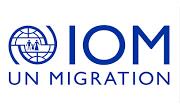Introduction
In a stark reminder of the ongoing humanitarian crisis in north-west Nigeria, the International Organization for Migration (IOM) has released its Flash Report #260, highlighting a significant increase in population displacement due to escalating violence and natural disasters in Kano State. Dated September 19, 2025, the report underscores the urgent need for coordinated relief efforts as tens of thousands are forced to flee their homes, seeking safety and stability amidst chaos. With reports of deteriorating living conditions and urgent humanitarian needs, this latest data serves as a clarion call for immediate action from both local authorities and international agencies to address the profound challenges facing displaced communities in this volatile region. As the situation evolves, the IOM is at the forefront of responding to the crisis, aiming to provide essential support and protection for those affected in the midst of rising insecurity and environmental instability.
Population Displacement Crisis in Kano State Highlights Urgent Humanitarian Needs
The ongoing population displacement crisis in Kano State has reached alarming proportions, revealing the urgent humanitarian needs of affected communities. As conflicts and environmental challenges intensify, thousands of families are being uprooted from their homes, facing severe hardships. Key factors contributing to this displacement include:
- Escalating violence: Increased attacks from armed groups have left many residents fleeing for safety.
- Food insecurity: Widespread hunger has left communities vulnerable and unable to sustain their livelihoods.
- Lack of access to healthcare: Displaced individuals struggle to access essential medical services due to overcrowded facilities and damaged infrastructure.
The humanitarian response must prioritize immediate assistance to address these critical needs. Organizations are mobilizing to provide emergency relief, yet the scale of the crisis necessitates further support. Efforts currently underway include:
- Provision of shelter: Temporary housing solutions are needed for families who have lost their homes.
- Food distribution: Initiatives aimed at delivering essential food supplies are being expedited.
- Healthcare services: Mobile clinics are being deployed to reach those in remote areas.
| Humanitarian Needs | Current Response |
|---|---|
| Shelter for Displaced Families | Construction of temporary housing units |
| Food Assistance | Distribution of food packages |
| Healthcare Access | Establishment of mobile clinics |
Analysis of Recent Trends in Displacement and Its Impact on Local Communities
The recent surge in population displacement in North-west Nigeria, particularly in Kano State, has raised serious concerns for local communities grappling with the consequences. As documented in the IOM Nigeria Flash Report #260, the persistent unrest and natural calamities have led to a significant increase in internally displaced persons (IDPs), exacerbating already strained resources. The influx of vulnerable populations has disrupted not just the day-to-day lives of residents but also the socio-economic fabric of communities, creating a ripple effect of challenges that require urgent attention.
The impact on local communities includes:
- Resource Strain: Increased demand for food, water, and shelter has led to heightened competition and strain on local resources.
- Social Cohesion: New dynamics have altered longstanding relationships, potentially fostering tension between host communities and IDPs.
- Health Care Challenges: Overburdened health services are struggling to cope with the rising number of individuals requiring urgent medical attention.
Furthermore, communities are witnessing shifts in employment patterns, with locals often forced to adapt to sudden changes in labor demand due to the influx. Plans for sustainable integration of IDPs into local markets and public services are critical to mitigating adverse impacts and ensuring stability for all affected populations.
| Impact Category | Details |
|---|---|
| Food Security | Increased competition over limited resources, leading to rising prices. |
| Healthcare Access | Overloaded clinics and reduced availability of essential services. |
| Economic Stability | Changes in labor dynamics impacting local employment opportunities. |
Recommendations for Immediate Action to Address the Humanitarian Situation in North-west Nigeria
The escalating humanitarian crisis in north-west Nigeria requires urgent and coordinated interventions to alleviate the suffering of displaced populations. Key recommendations to address this situation include the enhancement of emergency response mechanisms by local and international NGOs, which should focus on providing immediate access to shelter, food, and healthcare. Additionally, it is imperative to bolster community resilience by establishing food security programs and psychosocial support services tailored to the unique needs of displaced families. Collaboration with local authorities will also be vital to ensure that resources are allocated effectively and swiftly to those in dire need.
Furthermore, strengthening protection measures for vulnerable groups, particularly women and children, must be prioritized. This can be achieved through the establishment of dedicated safe spaces that offer support and resources. Training local emergency responders on basic humanitarian principles will enhance the overall effectiveness of the response. To facilitate monitoring and response efforts, the integration of data collection systems that map displacement patterns and needs will provide a clearer picture of the ongoing crisis. These concerted efforts will contribute significantly to addressing the immediate needs of the affected populations and fostering long-term stability in the region.
The Conclusion
In summary, the IOM Nigeria Flash Report #260 sheds light on the escalating crisis of population displacement in Kano State, exacerbated by ongoing conflicts and environmental challenges. As thousands are forced from their homes, urgent humanitarian efforts and support systems are more crucial than ever to address the immediate needs of those affected. The report underscores the importance of coordinated responses from government agencies, international organizations, and local communities to provide relief and pave the way for recovery and stabilization in the region. As Nigeria continues to grapple with these pressing challenges, the resilience of its people and the commitment of stakeholders will be key to navigating the complex landscape of displacement and disaster management.
